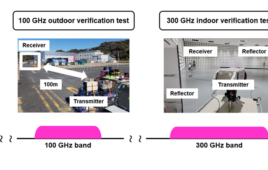It’s the hope of most that technology advances are used for the good of the world. However, that fantasy must be taken with a grain of salt. There is evil in the world, capable of unspeakable acts, and sometimes the technology meant for good can be turned into something utterly wicked. Technological advances offer so much, but as we gain progress, we also open the door for sinister acts.
UC Berkeley has an ongoing video series named Activism 2.0 that demonstrates how social activism and technology can collide. Students and alumni at UC Berkeley focus on using digital tools to combat social issues. In the video below, the third episode in the Activism 2.0 series focuses around Berkeley doctoral graduate Rebecca Sorla Portnoff. In the episode, she uses her computer security prowess to catch sex traffickers.
It’s estimated by the International Labour Organization that there are 40.3 million victims of human trafficking on a global scale. Out of those, 25 percent of them are children, 75 percent of them are women and girls, while 81 percent are imprisoned in forced labor. Human trafficking is a $150 billion industry and runs rampant worldwide. In 2017 it was estimated that one out of every seven runaways reported to the National Center for Missing and Exploited Children were more than likely victims of sex trafficking. The National Human Trafficking Hotline received more than 49,000 cases of human trafficking in the last 10 years.
In an effort to make a difference, Portnoff developed computer codes that can identify similarities in online ads placed by traffickers, and then find the financial accounts used to purchase the ads. After graduating in 2017, Portnoff began working for THORN: Digital Defenders of Children, an organization dedicated to building technology to fight the sexual abuse of children.




